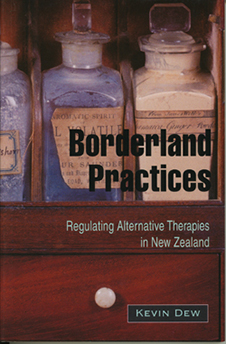Regulating alternative therapies in New Zealand
Kevin Dew
THIS TITLE IS OUT OF PRINT
Defining what is 'orthodox' and what is 'alternative' in primary health care therapies and practice is a difficult task these days. Some alternative therapies may be practiced by general practitioners as well as by alternative therapists, and some therapies are no longer 'alternative'. Kevin Dew argues that terms such as 'science', 'unorthodoxy' and 'incompetence' have tended to change in meaning over time. Some of the challenges to orthodox medicine in the twentieth century, such as chiropractic and acupuncture, are now accepted practice.
The New Zealand health reforms attempted to define a 'core' of health services that would be validated by science and provided to everyone, but solutions to the problems varied with the different patient populations seen by practitioners. And what were once acceptable concepts and practices in orthodox medicine are unacceptable now. Health reforms have also led to efforts to develop formulae that will guide the therapeutic actions of medical practitioners, but individual practitioners make their own judgments about patient care. How the delivery of care is regulated and funded are question that don't go away, and the author discusses some possible models.
The author
KEVIN DEW is a senior lecturer in the Department of Public Health at the Wellington School of Medicine and Health Sciences, University of Otago. With Peter Davis he has edited a book on health and society in Aotearoa/New Zealand and with Allison Kirkman has co-authored Sociology of Health in New Zealand.
Publication details
Paperback, 176 pages
ISBN 1 877276 52 1
RRP $39.95
Published in 2003
OUT OF PRINT
